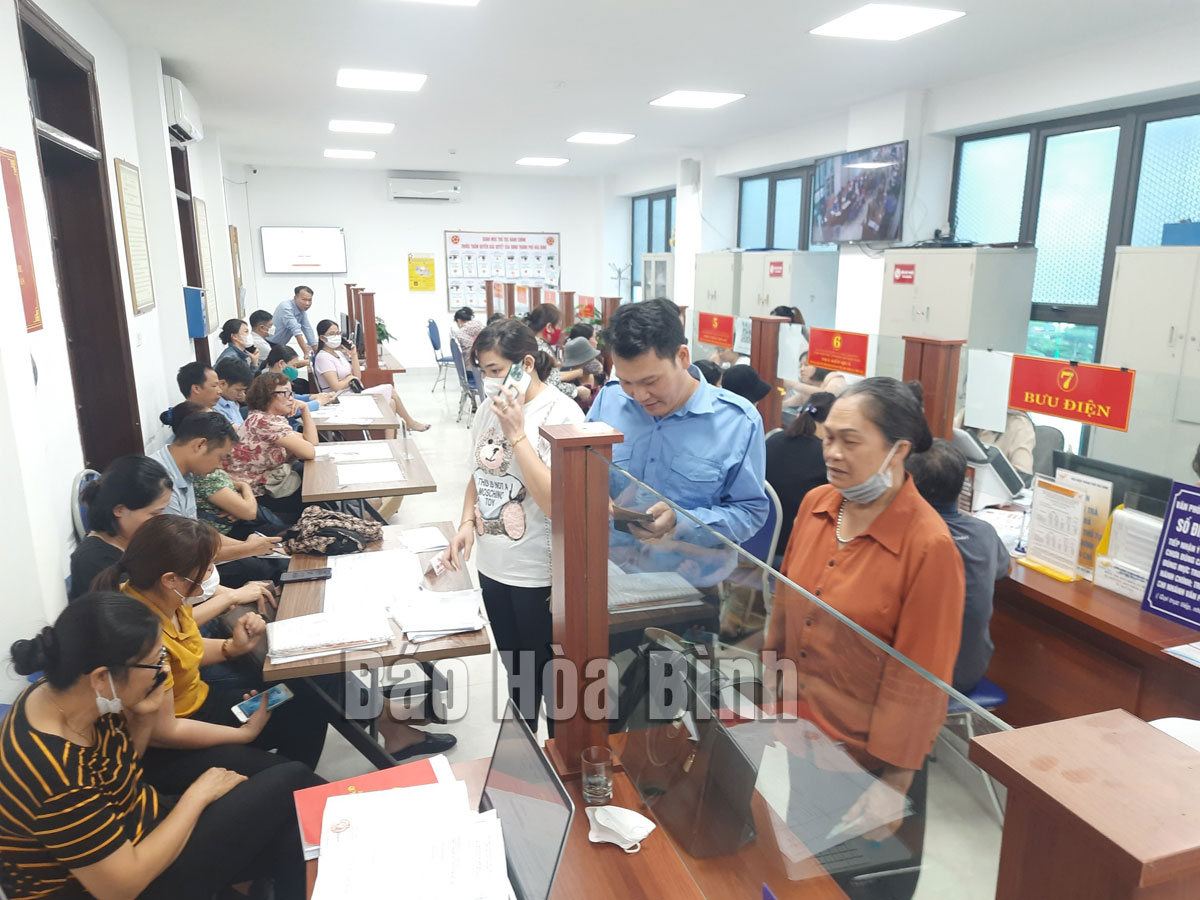



To create favourable conditions for organisations and individuals to handle administrative procedures, the People’s Committee of Hoa Binh city has publicised all sets of administrative procedures at its single-window division and place computers there so that people can search for related information beforehand.
At a recent conference on the PCI, the provincial Department of Planning and Investment said the province’s transparency sub-index stood at 4.8 points, the lowest among the 10 sub-indexes and also much lower than the locality at the middle of the rankings. It was the fifth year in a row this sub-index of Hoa Binh had decreased.
Last year, the local PCI was 62.81 points, up 5.65 points from 2021 (57.16 points). With this score, Hoa Binh ranked 53rd among the 63 provincial-level localities and jumped nine places on the list compared to 2021, higher than the target for 2022. However, this result still fell short of expectations of the province and the 17th provincial Party Congress’s resolution. Therefore, improving the business climate and the PCI remains a focal task requiring the engagement of the entire political system and support from the business community.
Chairman of the provincial People’s Committee Bui Van Khanh affirmed that improving the business climate and the PCI is critically important to evaluating the province’s capacity and attracting investment. This is also a race among provinces and cities to better the performance of cadres, civil servants, and public employees when delivering services to businesses and people so as to boost local socio-economic development.
Given this, all-level authorities, sectors, and localities need to address difficulties, take stronger actions, and implement concerted measures to continue improving the investment and business climate as well as the competitiveness in all fields. Particularly, focus should be paid to the sub-indexes declining in 2022 and those with much influence on the PCI like informal charges, business support policy, proactivity, and access to land, according to the Chairman.
In efforts to raise the transparency sub-index, the provincial Department of Information and Communications has made reviews and proposed transparency enhancement solutions to the provincial People’s Committee. It has coordinated with agencies and units to promote their application of information technology and e-administration building, and develop a modern, safe, and usable public service portal for the province.
The Office of the provincial People’s Committee has ordered departments, sectors, and localities to review guidance for handling administrative procedures, propose transparency improvement solutions, and reduce the time needed to settle procedures. The Business Association has stepped up disseminating the Government's and the provincial administration’s policies while maintaining surveys and collection of businesses’ feedback about mechanisms, policies, and the dynamism, creativity, and attitude of cadres, civil servants, and public employees. Meanwhile, the provincial Taxation Department has worked to raise its staff members’ sense of responsibility and discipline towards their duties.
Identifying administrative reform as the breakthrough step, Hoa Binh province will improve the quality of legal documents issued and effectively apply the public service portal and the electronic single-window mechanism, thereby reducing the time for solving administrative procedures, eradicating bureaucracy and negative phenomena, and creating an open, transparency, favourable, attractive, and equal investment climate for all businesses.
To contribute to these efforts, the online Hoa Binh Newspaper has opened a section named "Quy hoach tinh Hoa Binh” at Baohoabinh.com.vn/quyhoachtinhhoabinh to publicise information about planning, the decisions approving the Provincial Plan and urban and housing development programmes, along with detailed zoning plans of localities.